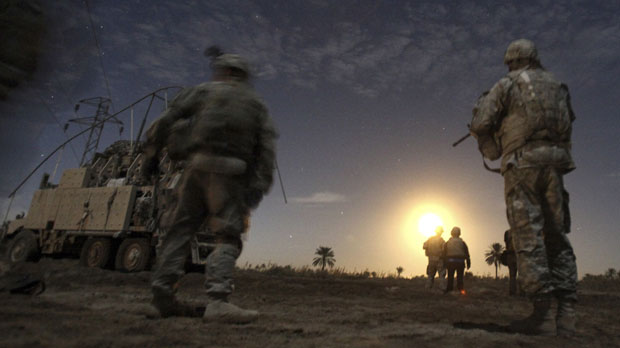Violence surges as US troops prepare to leave Iraq
Defence analyst Anthony Tucker-Jones looks at the uncertain future facing Iraq and the wider region as US troops prepare to withdraw from the country at the end of this month.

Everyone is now clock watching as the final countdown for the completion of the US military withdrawal from Iraq draws ever closer.
With the handing over of the US Victory Base in Baghdad and Balad air base, the Iraqi security forces are now completely on their own. Less than 10,000 US troops remain in country and they will be gone by December 31.
Although Iraq’s armed forces have greatly improved with US training and equipment, the Iraqi government fears that the loss of US air support and intelligence assets has permitted a resurgence of militants in the north and west of the country.
It was hoped there would be a hiatus in the sectarian violence while Washington evacuates the last of its personnel. However, during November nearly 200 people were killed including a US soldier.
Read more: Christmas in Iraq, living in fear
In recent weeks, Iraqi militants have ramped up attacks across the country to signal their contempt for America’s pullout and the Iraqi government.
Sunni militants have been testing the Iraqi security forces by targeting the Shia festival of Ashura. Shia have been killed and wounded in al-Nila, Hilla, Khalis and Latifiya.
At the same time members of the Sunni Sahwa militia who support the government have been attacked in Buhriz.
Sectarian violence
The real concern is that Iraq could come apart at the seams if its longstanding ethnic and sectarian tensions are permitted to boil over. Put crudely the Arabs and Kurds hate each other, as do the Shia and the Sunnis.
While all this has been happening Iran has not been sitting idly on the sidelines. It has old scores to settle.
Certainly there is now a very real danger that Shia militias – funded, trained and equipped by Iran – will now seek to carve out a state within a state.
Iraq could come apart at the seams if its longstanding ethnic and sectarian tensions are permitted to boil over.
US Senator John McCain has called the withdrawal a “Victory for Iran.” Certainly Iran has always been extremely unhappy about having US troops right on its doorstep and one of Tehran’s foreign policy goals was to get America out of Iraq.
Cynically during the height of the Iraqi insurgency Iran was backing both Shia and Sunni factions.
In addition Iran will see meddling in Iraq as a way of distracting Western led disapproval of its nuclear ambitions.
Ripples through the Middle East
Elsewhere tremors of unease have been passing through Jordan, Saudi Arabia, Syria and Turkey. All are apprehensive about the future stability of their neighbour.
Most notably for Syria and Turkey, the Kurdish question looms large. The Kurdish autonomous zone in northern Iraq has shown what Kurdish nationalist aspirations can achieve. Only a strong central government in Baghdad can keep that in check.
Turkey is less than happy that once again it finds itself fighting a cross border war, as it attempts to keep in check the violent attacks of the resurgent Kurdish Workers’ Party – known as the PKK.
Turkey has been seeking US drones to support its war against the PKK and some have been shipped from Iraq to Incirlik air base in southern Turkey.
Read more: The top army lawyer slamming the MoD over human rights abuses
Iran, with its own sizeable Kurdish population, had made it known that it will co-operate with Turkish military operations against the guerrillas.
The final departure of the US military by 31 December will leave at risk those American contractors staying on.
Jaish al-Tariqa al-Nakshabandia, a Sunni Islamist militant group, has vowed to continue attacking US military advisors and security staff.
Iraq’s future remains far from certain or indeed stable. While the US has done all it can to strengthen the Iraqi military and police, it is unclear whether they will be able to hold at bay the Shia militias and the al-Qaeda linked Sunni militants.
The Iraqi government has ordered $8bn worth of American weapons including artillery, tanks and jet fighters, whether it will do them any good remains to be seen.
Anthony Tucker-Jones, a former Defence Intelligence official, is the security and terrorism correspondent for Intersec – The Journal of International Security as well as a regular commentator for defencemanagement.com.
-
Latest news
-
Boy with profound learning disabilities reaches out of court settlement after abuse in residential school7m

-
India election: Modi rivals hit by string of raids and arrests7m

-
Can UK’s abandoned mines be used to build a greener future?5m

-
Sycamore Gap: Man pleads not guilty to felling iconic tree2m

-
‘Child poverty has not fallen since Tories came in’, says Gordon Brown5m

-




